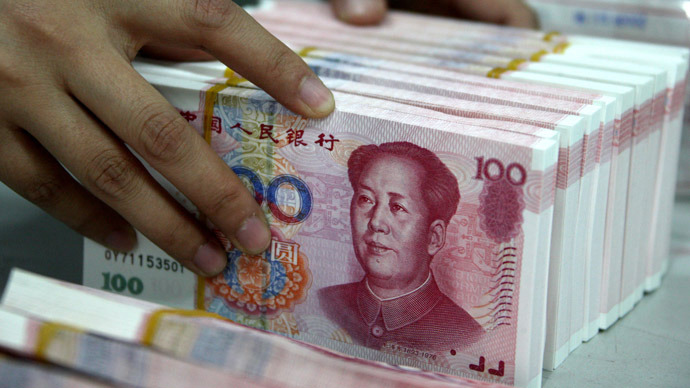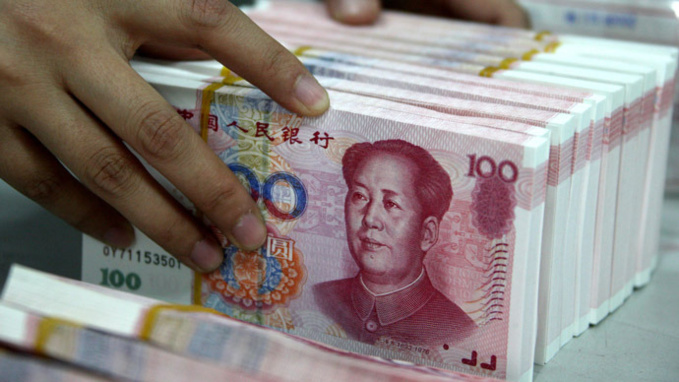The volume of foreign investment of Chinese business can reach $ 1.5 trillion in the next ten years. This is 70% more than in 2007-2016, says international law firm Linklaters LLP. Although the volume of such transactions declined in 2017, the long-term initiatives of the authorities of the People's Republic of China, such as "Made in China 2025" and "Belt and Road Initiative" will ensure growth of foreign investments, Linklaters believes. According to the official estimate, in the next five years their volume will amount to $ 600-800 billion.
The most attractive destinations will be high technology, electronics and energy infrastructure. However, foreign regulators may regard them as "strategic" in terms of national security and interests. Although the amount of announced foreign mergers and acquisitions involving Chinese was about $ 220 billion in 2016 (twice as much as in 2015), a significant portion ($ 40-75 billion) was either blocked by regulators or canceled by investors themselves for fears of blocking. Foreign regulators, especially European ones, are also concerned about the issue of mutual openness of economies for foreign direct investment. Therefore, their attitude to Chinese investors will be directly related to the future liberalization of the Chinese economy.
In addition, Chinese investors face obstacles in the homeland. Since the end of 2016, the PRC authorities have tightened control over the outflow of capital. Companies are advised to refrain from buying foreign assets that are not related to their core business, and the creditworthiness of investors is thoroughly checked. However, Linklaters expects that the business environment of the PRC will remain favorable for investment in foreign strategic projects. Circumvention of restrictions is possible both at the expense of foreign suppliers of capital, and through the use of foreign legal entities of Chinese companies. To circumvent investment restrictions in some jurisdictions, it is also possible to invest in minority or joint ventures. In this case, Chinese purchasers can use technology in the Chinese market, the law firm believes.
Meanwhile, the Chinese leadership is actively trying to increase the flow of investment in the country. In July, the Chinese government announced new steps to further promote openness.
According to a July meeting of the Central Steering Group on Financial and Economic Affairs, China should create "stable, fair, transparent and predictable business conditions," and intensify efforts to build open business relationships and help promote a sustainable and healthy development of the Chinese economy.
In the first half of this year, volume of incoming foreign direct investment fell by 0.1% compared to the same period last year to 441 billion yuan (66 billion US dollars). However, number of new foreign enterprises in China grew by 12.3%, said the Ministry of Commerce of the PRC.
source: xinhuanet.com
The most attractive destinations will be high technology, electronics and energy infrastructure. However, foreign regulators may regard them as "strategic" in terms of national security and interests. Although the amount of announced foreign mergers and acquisitions involving Chinese was about $ 220 billion in 2016 (twice as much as in 2015), a significant portion ($ 40-75 billion) was either blocked by regulators or canceled by investors themselves for fears of blocking. Foreign regulators, especially European ones, are also concerned about the issue of mutual openness of economies for foreign direct investment. Therefore, their attitude to Chinese investors will be directly related to the future liberalization of the Chinese economy.
In addition, Chinese investors face obstacles in the homeland. Since the end of 2016, the PRC authorities have tightened control over the outflow of capital. Companies are advised to refrain from buying foreign assets that are not related to their core business, and the creditworthiness of investors is thoroughly checked. However, Linklaters expects that the business environment of the PRC will remain favorable for investment in foreign strategic projects. Circumvention of restrictions is possible both at the expense of foreign suppliers of capital, and through the use of foreign legal entities of Chinese companies. To circumvent investment restrictions in some jurisdictions, it is also possible to invest in minority or joint ventures. In this case, Chinese purchasers can use technology in the Chinese market, the law firm believes.
Meanwhile, the Chinese leadership is actively trying to increase the flow of investment in the country. In July, the Chinese government announced new steps to further promote openness.
According to a July meeting of the Central Steering Group on Financial and Economic Affairs, China should create "stable, fair, transparent and predictable business conditions," and intensify efforts to build open business relationships and help promote a sustainable and healthy development of the Chinese economy.
In the first half of this year, volume of incoming foreign direct investment fell by 0.1% compared to the same period last year to 441 billion yuan (66 billion US dollars). However, number of new foreign enterprises in China grew by 12.3%, said the Ministry of Commerce of the PRC.
source: xinhuanet.com



















